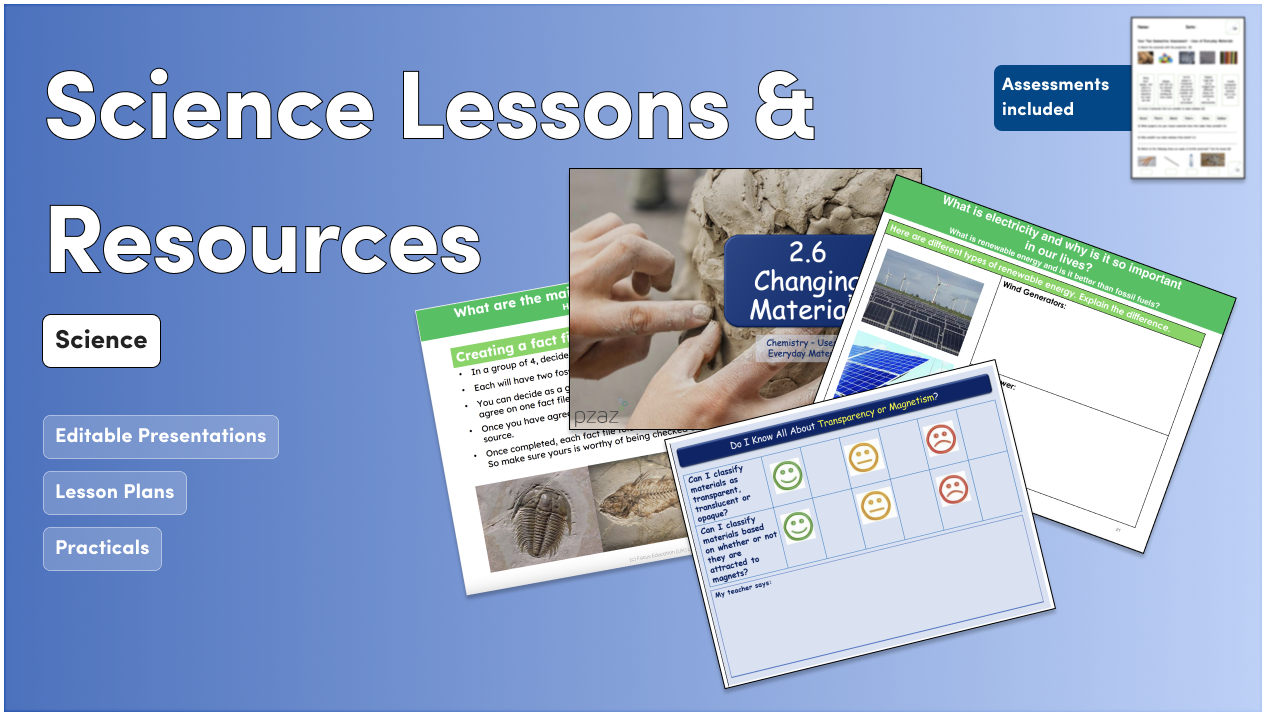Schemes of Work: How to Choose the Right One

A scheme of work is a long-term plan designed to ensure that students are taught all the skills and knowledge in the curriculum for that subject. Schemes of work are typically broken down into teachable units or modules.
Schemes can be highly valuable in two key ways:
- Schemes should reduce teacher planning and preparation time, and
- Ensure students are taught progressive lessons that cover the full curriculum.
However, not all schemes are made equal and the wrong scheme, or following a scheme totally rigidly can cause difficulties.
To take the difficulty out of choosing between a multitude of schemes, we partner with the best schemes of work - giving teachers access to progressive, primary schemes of work across 9 subjects, all in one place.
Save time by accessing choice, quality and flexibility at your fingertips.

What is a scheme of work?
A scheme of work is a long-term plan that outlines everything that needs to be taught and learned over the course of a term or school year. A scheme of work is often compared to a syllabus, but they differ because a syllabus simply covers what should be taught, while a scheme of work goes deeper into how topics will be taught.
Schemes of work usually include things like how many hours each topic will be allocated, in what order topics will be taught, and how knowledge will be assessed. Schemes generally contain unit and lesson plans and good schemes will include curriculum mapping and progression mapping so teachers have a comprehensive plan for the term or year ahead.
While most schemes of work follow the national curriculum, schemes of work can differ significantly from one another in their approach and ordering.
A scheme of work can be extremely beneficial for teachers for reasons we’ll discuss in more detail shortly, but they primarily give teachers an overarching guide and plan they can follow to ensure all necessary learning outcomes are met, reducing their planning time dramatically.
How to choose the right scheme of work
Choosing the right scheme of work is critical to student progression both within the year and across their school career. Your chosen scheme of work should meet your school’s vision for what your children learn, support the staff delivering the curriculum, and be assessable.
Due to the many schemes of work available, choosing the right one can be a challenge. Websites such as Scheme Support allow you to compare hundreds of primary schemes of work so you can get a snapshot into the schemes available and an idea of what might be appropriate for your school.
Progression is Key
The scheme of work you choose shouldn’t simply be a list of points you need to teach; it should contain a clear and purposeful progression of knowledge and skills for your class. The scheme of work should build upon existing knowledge and tackle new concepts while respecting the children’s maturity level and growing knowledge base.
It should, through gentle progression, build their confidence in the subject(s) being taught by reinforcing the knowledge they already have, while building new and more complex ideas on top.
For example, this science scheme of work from PZAZ uses knowledge progression maps to allow teachers and subject leads to clearly see progress not only throughout the year but across year groups, too. This clear progression ensures pupils’ knowledge progresses as it should and provides schools and teachers sound guidance and assurance that this progression is happening.
This progression allows teachers to get a bird’s-eye view of their pupil’s trajectory and give them a foundation of knowledge that will pay dividends for them in the future.
What are the Benefits of Schemes of Work?
So why use a scheme of work when you could simply create lesson plans from the curriculum or a syllabus?
Save planning time whilst keeping flexibility:
When planned and used correctly, schemes of work free-up teachers' time to focus on teaching. Instead of worrying about the what of what they’re teaching, they’re able to focus on the how.
Schemes can sometimes face critique for being overly restrictive. However, schemes of work do not need to be adhered to at all costs - schemes create freedom so teachers can focus on adapting the content to meet the needs of their class and the individuals they’re teaching.
Particularly at the primary level, no teacher can be an expert in every subject they teach. This is where schemes are particularly valuable, giving teachers a clear plan to build their class into subject experts.
For subjects that teachers are less comfortable with, they can adhere to a scheme in the knowledge their pupils are being taught the full spectrum of required skills and knowledge. In areas they are more confident, teachers can draw on other resources to complement the scheme's lesson, allowing them to cater to the needs of their class.
With the majority of their planning done, teachers have the room to add their creative flair to lessons or ensure that they have adapted the scheme to meet school requirements. For example, teachers could amend the starter activity or knowledge consolidator. Meanwhile, schools can be confident all teachers are adhering to a progression-based curriculum.
How to find the best scheme for your school?
Despite the value of schemes, deciding on the appropriate one for your school can be a challenge. Pango hand-selects primary schemes of work from trusted publishers to ensure all schemes are high quality, contain clear progression and are loved by schools and teachers. Rather than being met with countless search results, a Pango account allows you to access only the best-in-class schemes, lessons and resources, giving schools and teachers the confidence that their pupils are being taught from the best resources.
We know that every pupil, every class and every school is different. That's why our planning tools allow teachers to customise these schemes to better meet the needs of their class. We recommend the most relevant resources from our extensive library of trusted content, so you can easily supplement and adapt schemes of work without spending hours re-creating lessons or searching for additional resources.
To find out more about how Pango helps you save time while ensuring your pupils access the best teaching content, explore our schemes, lessons and resources.


